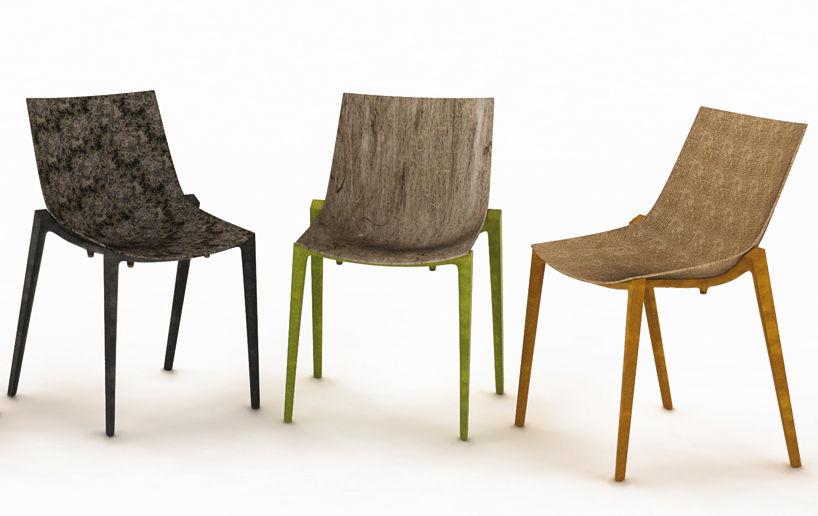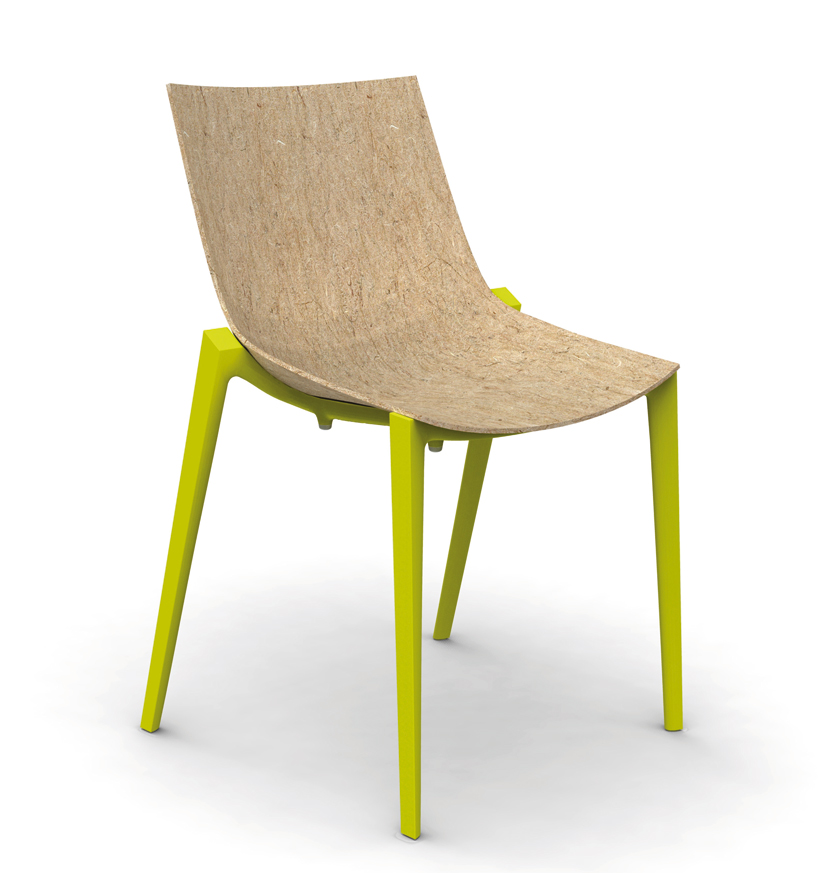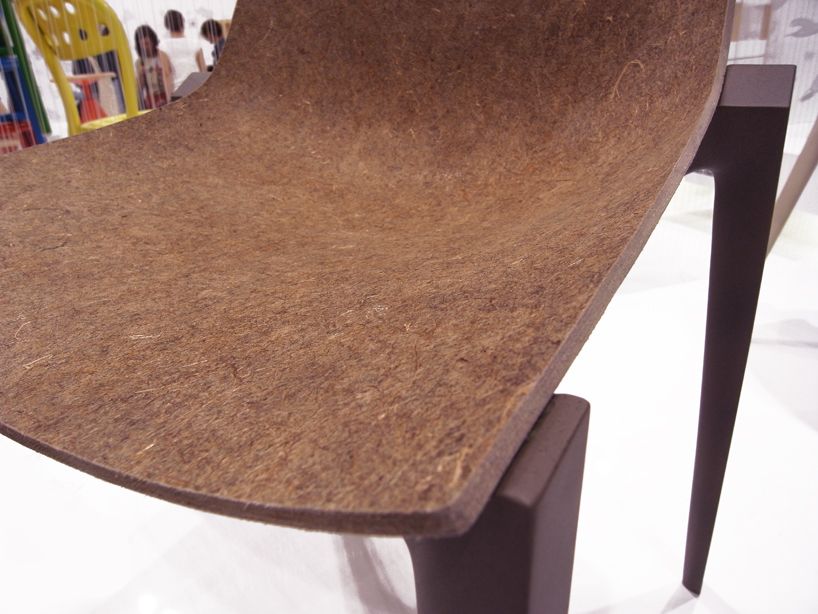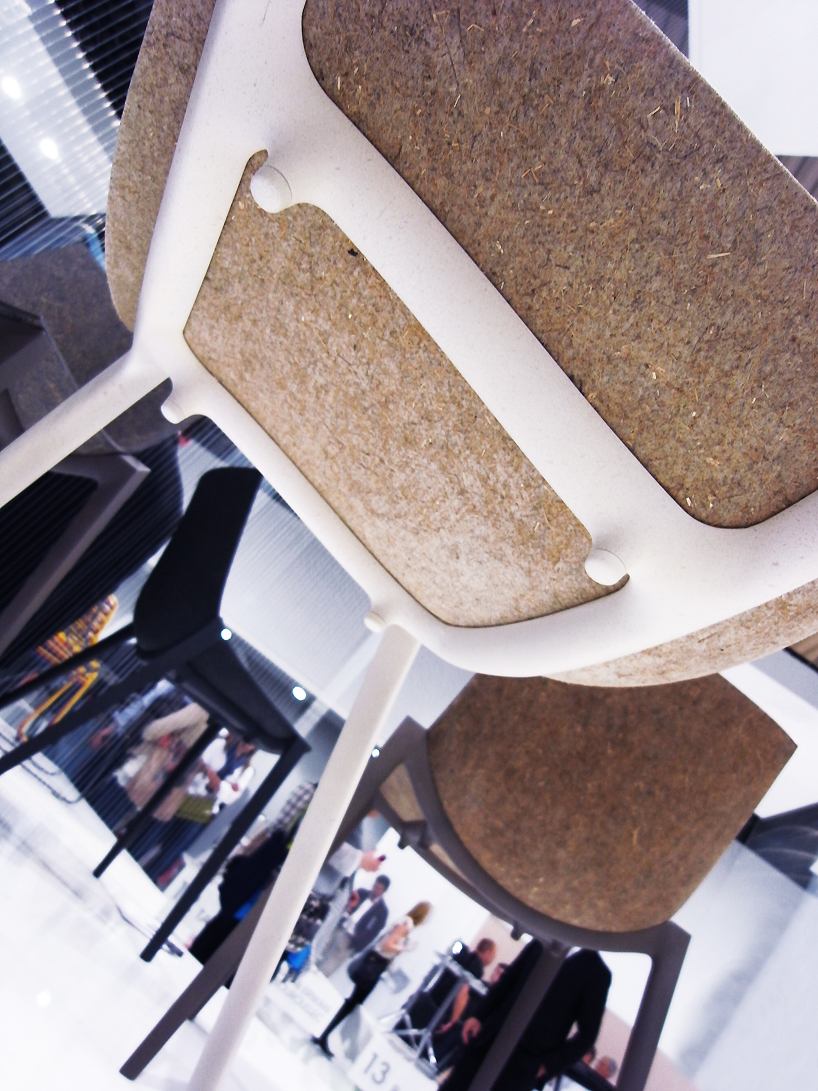Classic Furniture Reimagined in Liquid Wood

For all its flawed variability, wood has long remained a leading go-to choice for creating furniture. Still, competitors like plastic (and issues of scarcity and sustainability) make its old uses less appealing with time. Thus, a new form of industrial production has emerged: liquid wood made from organic materials like bamboo, flex, hemp, jute and rattan. The unusual material was featured in chair form this year in Milan, taking the shape of classic designs by highly recognizable designer names like Phillipe Starcke.
Like some sort of postmodern alchemy, a type of resin is created from discarded wood-pulp of the aforementioned plants, natural fibers and fish oils; the murky mixture is compressed, heated and ultimately fused together in a durable, strong and toxin-free alternative to petroleum-generated products.
Under heat and pressure, the resulting viscous substance can be used for injection-molding furniture pieces with all the flexibility-but-rigidity of traditional plastics. Best of all, the products are recyclable – no cancer-causing or otherwise toxic agents are fed into the mix. Like conventional wooden furniture pieces, the materiality is still present in the finished chairs (or tables or whatever you wish).
Here you can see how they come together into a beautiful series called “Zartan” by Starcke and Eugeni Quitllet. Noting that design isn’t like art or fashion, Starcke says young designers should understand that the objects they create must present solutions to real problems. We must “overcome the mistakes that we’ve made” in the past with toxic materials and find new ways to move forward that will satisfy demand, please consumers and do less harm to human health and the environment.
No functionality is sacrificed by using the innovative “liquid wood” material to create this sustainable furniture. If anything, it’s even better than plastic, and it would be great to see more items made from it extending into a variety of product types.







